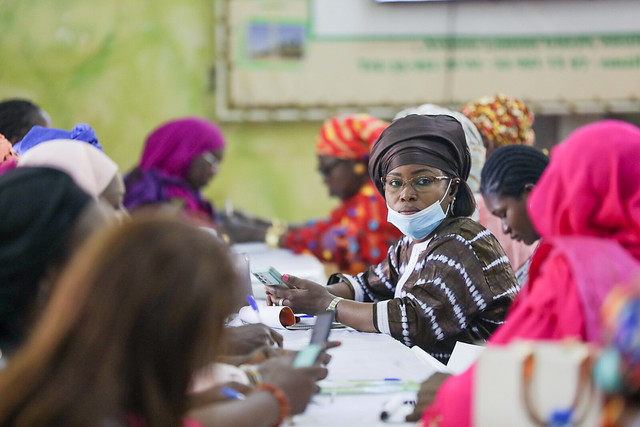
Enabling Environment

In Kenya, gender statistics is now a national priority and stakeholder engagement has resulted in several policy advances. Collaborative efforts between UN Women and the Kenya National Bureau of Statistics (KNBS), the State Department for Gender (SDfG), and other stakeholders in the NSS, resulted in the development of Kenya’s Gender Sector Statistics Plan (GSSP) 2019/20–2022/23 instrumental in the generation and use of gender statistics in the country. The establishment and efforts of the Inter-Agency Gender Statistics Technical Committee (IAGSTC) provided a space for discussing the Kenya Census of Population and Housing 2019, which for the first time included the enumeration of the intersex population. Collaboration through the IAGSTC also facilitated other impacts such as the development of County Data Sheets, for the first time providing baseline data to track progress on gender equality, and an Agricultural Finance Corporation (AFC) study on women’s access to agricultural finance, which resulted in revisions of the Corporation’s gender policy and financial commitments. In Kitui County, the county gender data has triggered three concrete legislations, specifically, a County gender policy, an Empowerment Bill, and a Mainstreaming Bill, ensuring that the county takes gender into consideration, including in the allocation of resources. Improved access to data has also driven quality graduate research by University of Nairobi students supported by grants. The research is not only influencing public policy proposals but has also prompted KNBS to fill data gaps on femicide and other specialized areas of study. KNBS partnership with UN Women has also led to the development of Kenya’s inaugural Women’s Empowerment Index (WEI) Report and popular version, County Poverty Profile Reports for all 47 counties, a Comprehensive Poverty Profile Report, and 47 County Budget Briefs in partnership with UNICEF and several public agencies.
Working with UN Women has helped us developed the second version of the National Priority Gender Equality Indicators (NPGEI). [Working on] these indicators, has brought together all the people who produce statistics and mainstreamed statistics in their strategic plans and were able to know which ministry, department, agency is responsible for a given type of statistics. We have also developed a capacity building plan, with support from UN Women, on how we are going to train not just people working in government, but also civil society organizations on how they can best produce gender statistics. This is now manifesting itself in the statistics of enrolment in primary and school, secondary school where there is almost parity in boys and girls."
In Uganda, Women Count is helping to scale up gender responsiveness in public procurement through evidence-based decision-making. Following the revision of the National Gender Policy 2017 and the reprocessing of the initial 106 priority indicators of National Priority Gender Equality Indicators (NPGEIs) indicators in a participatory and consultative process with support from UN Women, Uganda has initiated a revision of its Public Procurement and Disposal of Assets Policy to improve the level of women’s participation in and benefits from public procurement.
Women Count has supported several non-pathfinder countries including Ethiopia, Tanzania, Uganda, and Mozambique to conduct national assessments of their respective gender statistics systems and supported strengthening of their capacities to produce and disseminate new gender data. Similar assessments are upcoming in Malawi and Sudan.